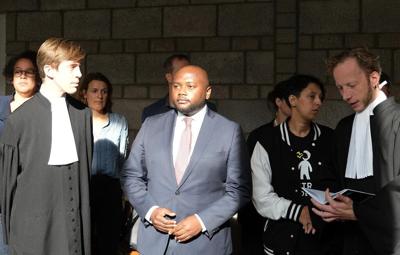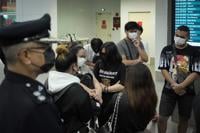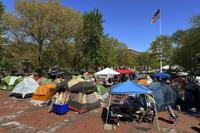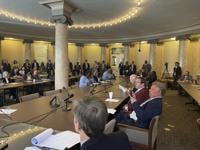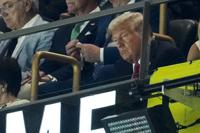THE HAGUE, Netherlands (AP) ÔÇö An appeals court on Tuesday prohibited the Netherlands' military police from using racial profiling as a way of selecting people for identity checks at borders, marking a victory for two citizens and rights groups who sued the government.
The Hague Court of Appeal overturned a that said ethnicity could be one of the criteria for singling out passengers, but not the only one. The checks are carried out at airports and on trains and buses from European Union destinations to prevent people illegally coming and staying in the Netherlands.
The appeal court said in a statement that it found that the police, called the Marechaussee, ÔÇťmakes a distinction on the basis of race. Given the serious consequences of discrimination on grounds of race, such discrimination should only be made if there are particularly compelling reasons. The State has not demonstrated such compelling reasons."
The court said it ÔÇťtherefore prohibits the State from making selection decisions that are (partly) based on raceÔÇŁ during border checks.
The case was brought by two citizens who argued that they were singled out for checks by officers from the countryÔÇÖs Marechaussee police force because of the color of their skin.
One of the plaintiffs, Mpanzu Bamenga, a city councillor from Eindhoven who was born in Congo, said after the original ruling in 2021, every time he returned to "my country, the Netherlands, IÔÇÖm being stopped because of my ethnicity.ÔÇŁ
On Tuesday, he was jubilant at the court's ruling.
ÔÇťThis is discrimination, itÔÇÖs ethnic profiling," he said in a telephone interview. And itÔÇÖs so wonderful to see that the higher courts basically acknowledge it. And for me, as a human being, itÔÇÖs so good to see that justice has prevailed.ÔÇŁ
The Marechaussee said after the 2021 court case that it would change the way it works at border checks, but the appeals court said it saw ÔÇťno or only limited change in working method.ÔÇŁ
Marechaussee spokesman Maj. Robert van Kapel said the organization would carefully study the ruling ÔÇťand see what its consequences are for now.ÔÇŁ
The organization has the option to appeal the ruling to the Supreme Court.
Dionne Abdoelhafiezkhan of the Dutch rights group Controle Alt Delete said the court ruling ÔÇťalso makes it clear that someoneÔÇÖs appearance and color say nothing about someoneÔÇÖs nationality. ThatÔÇÖs an important correction to the courtÔÇÖs earlier ruling that shocked many people of color and made us feel like second-class citizens.ÔÇŁ

